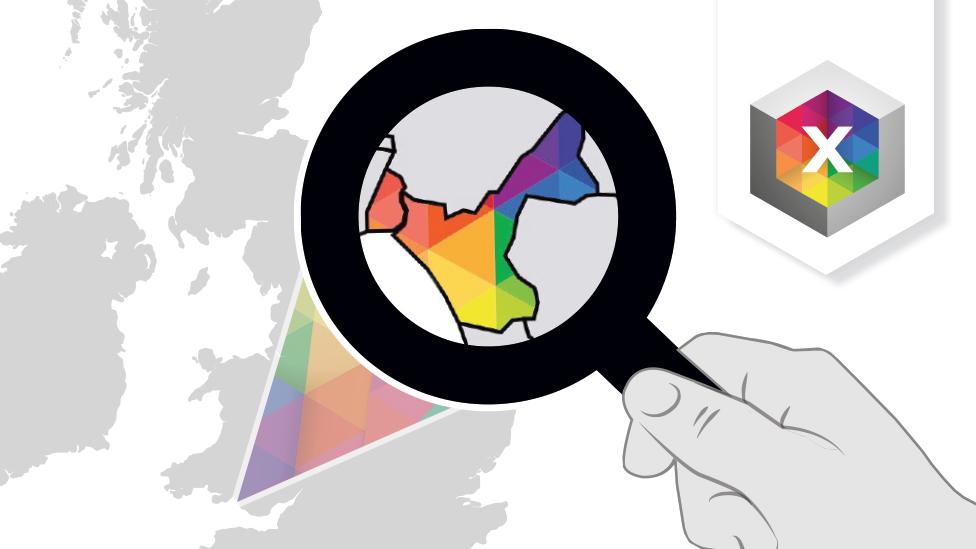Election 2019: 'Stark choice' on tax and spending
- Published

Funding for Welsh public services will grow 3.5 times faster under Labour's tax and spending plans than the Conservatives', independent analysis of their manifestos shows.
Experts say voters face a "stark choice" between the plans published by the parties ahead of the election.
But they also raise questions about parties' ability to pay for plans.
Labour's tax plans would generate an estimated £3.2bn extra compared to Tory plans in four years' time.
Whoever wins the election, public spending is likely to increase.
But if Labour stuck to its plans the Welsh Government in Cardiff would have more to spend on things like education and the NHS.
The Liberal Democrats' spending plans are somewhere between Labour and the Conservatives, as is the amount Plaid Cymru says it would need to deliver in Wales.
The Brexit Party says funding should grow at least as fast as the economy and says leaving the EU will save money.
The range of spending commitments on offer at the election on 12 December is much bigger than at recent elections.
Although it has some tax-raising powers, most of the Welsh Government's funding comes in a grant from Westminster.
Analysis by the independent Institute for Fiscal Studies (IFS) compares how the manifestos of the three biggest UK-wide parties would alter the devolved budget.

Christine Farquharson of the IFS said it was "pretty stark".
"It's hard to overstate just how big the difference is [between Labour and the Conservatives]."
A separate analysis by the Wales Governance Centre at Cardiff University found the Welsh budget would grow 28% under Labour, compared to 8% under the Tories - a "huge" difference.
A UK government spending review in September boosted the Welsh Government's revenue budget - the money available for the day-to-day running of public services, including the NHS and education.
On top of that, Labour would raise more money through increasing taxes for companies and people earning at least £80,000 a year.
It is not known how many people in Wales would pay more income tax as a result, but HMRC says around 15,000 Welsh people earn over £100,000 a year.
Welsh Labour said its manifesto was "the most ambitious of any party, and we make no apology for wanting the very best for Wales and the rest of the UK".
The Conservatives have said they will not raise income taxes and have promised to cut National Insurance contributions.
But the IFS has raised doubts about whether the Tories or Labour will be able to stick to their spending plans, saying neither has "a properly credible prospectus".

Big spenders
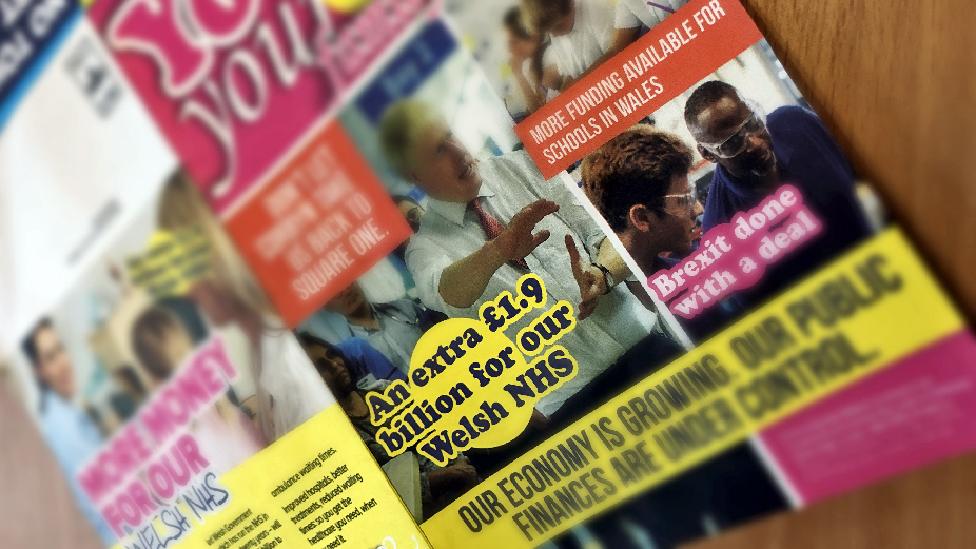
A Conservative leaflet talking about health spending, but the Welsh Government makes the decisions
This Conservative leaflet blurs the boundaries of devolution by claiming the party is providing an extra £1.9bn for the NHS.
It rounds up all the extra spending contained in their manifesto over four years, including revenue spending - which pays for things like public sector wages, and capital - the separate pot of money used to build things.
But the money does not go from Westminster directly to the NHS. It goes to the Welsh Government which, under devolution, decides how it is spent.
The amount given to Wales is worked out using a formula that takes account of population and how much is spent in England.
Ploughing every penny into health would leave nothing for education, undermining this leaflet's other claim about more funding for schools.

A Conservative spokesman said: "Our manifesto plans would see £1.8bn extra going to Welsh public services, with even more funding available through our long term funding plans for the NHS and schools, which we will pay for without increasing income tax, VAT or National Insurance on hard working people."
The Lib Dems are banking on cancelling Brexit to help pay for their promises, saying the economy would grow faster inside the EU and generate more tax revenue for the government.
But economic growth cannot be guaranteed.
Welsh Lib Dem leader Jane Dodds said her party's anticipated "remain bonus" of £50bn was a conservative estimate.
The Lib Dems had a "costed, moderate manifesto" and "don't want to overpromise", she said.

The end is in sight
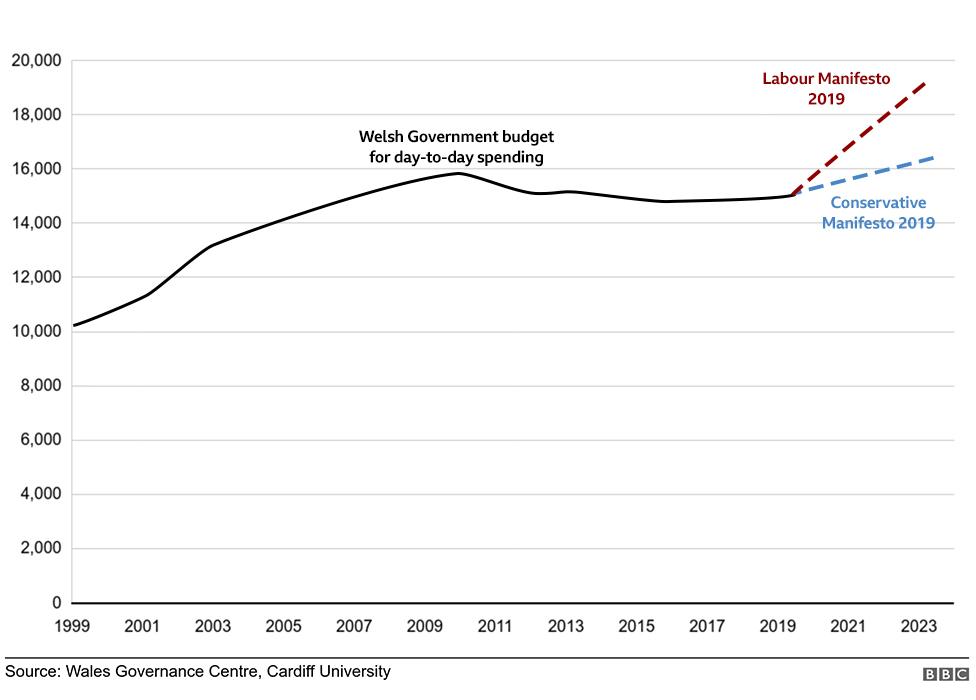
Cuts to the Welsh Government's budget started under the austerity measures of the Conservative-Lib Dem coalition nearly 10 years ago.
Spending will return to 2010 levels in the next Parliament, whoever is in power.
But the Wales Governance Centre said matching health spending in England could squeeze other services under a Tory UK government.
Although there "is uncertainty and justified scepticism" about all the parties' plans, there is a "stark choice facing voters", the centre says.

Unlike the Conservatives, Labour and the Lib Dems, Plaid has not published a separate costings document.
Many of its key commitments - including recruiting more doctors and nurses - could only be done if it won power in the assembly.
If that happened, Plaid said it would need an additional £1.7bn by 2023-2024 to deliver the policies in its manifesto.
It says extra money could be raised through taxes, including a 2p rise in employee National Insurance contributions for people earning over £50,000.
The Brexit Party said other parties' plans for higher taxes would heap pressure on the private sector.
Brexit Party AM Mark Reckless also said reducing foreign aid, leaving the EU without a deal - thereby avoiding the so-called divorce bill - and cancelling the HS2 rail project would release money that could be spent in Wales.
The comparison figures do not the include capital spending that pays for building projects which all parties propose to increase through borrowing.
Other forms of UK government spending in Wales are also excluded, such as defence, welfare payments and the state pension.
The Welsh Government is due to publish a draft budget four days after the general election.
- Published5 December 2019
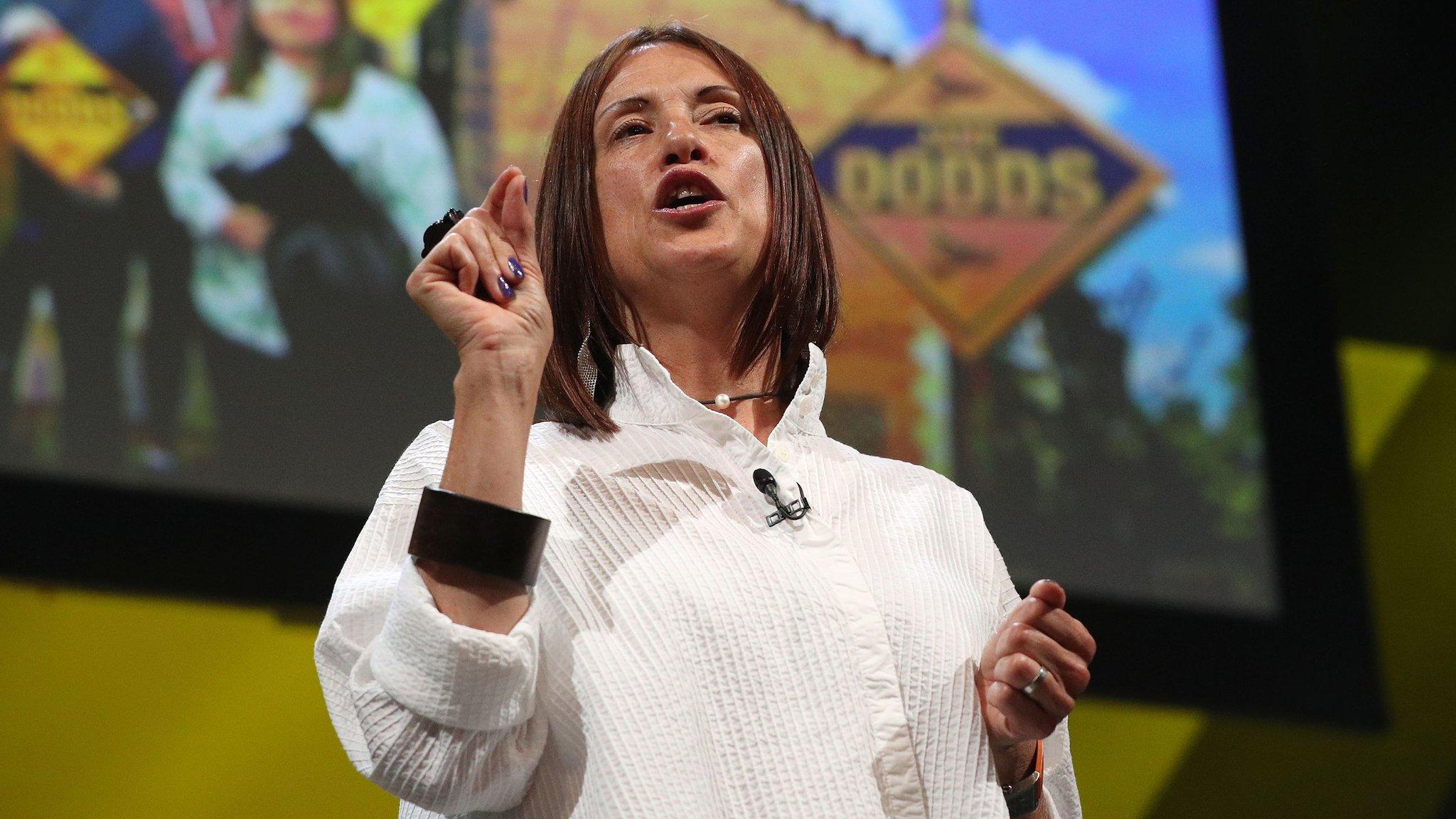
- Published4 December 2019

- Published3 December 2019
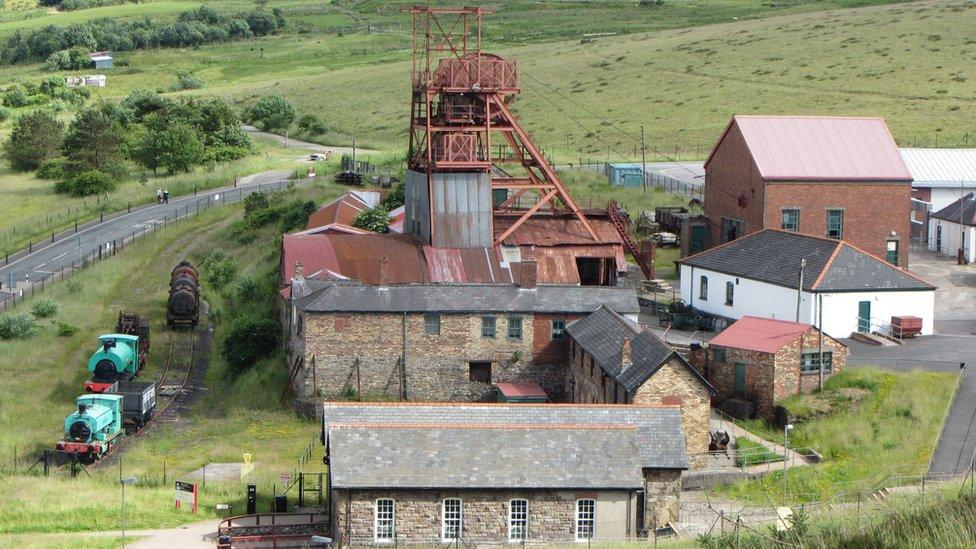
- Published18 November 2019
